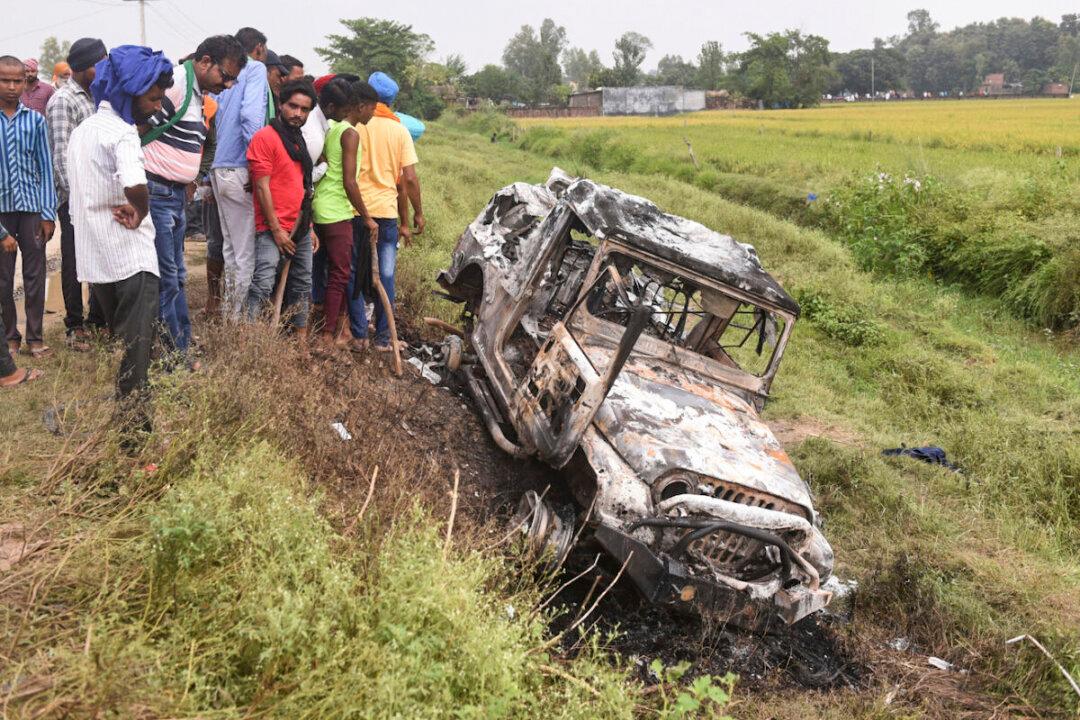The son of a junior minister in India’s government was arrested by police on Saturday after a recent protest escalated and ultimately left nine people dead.
Officials and farm leaders said four farmers died after a car ran over a group of farmers who were protesting on Oct. 3 in Lakhimpur Kheri, a town in Uttar Pradesh state.




